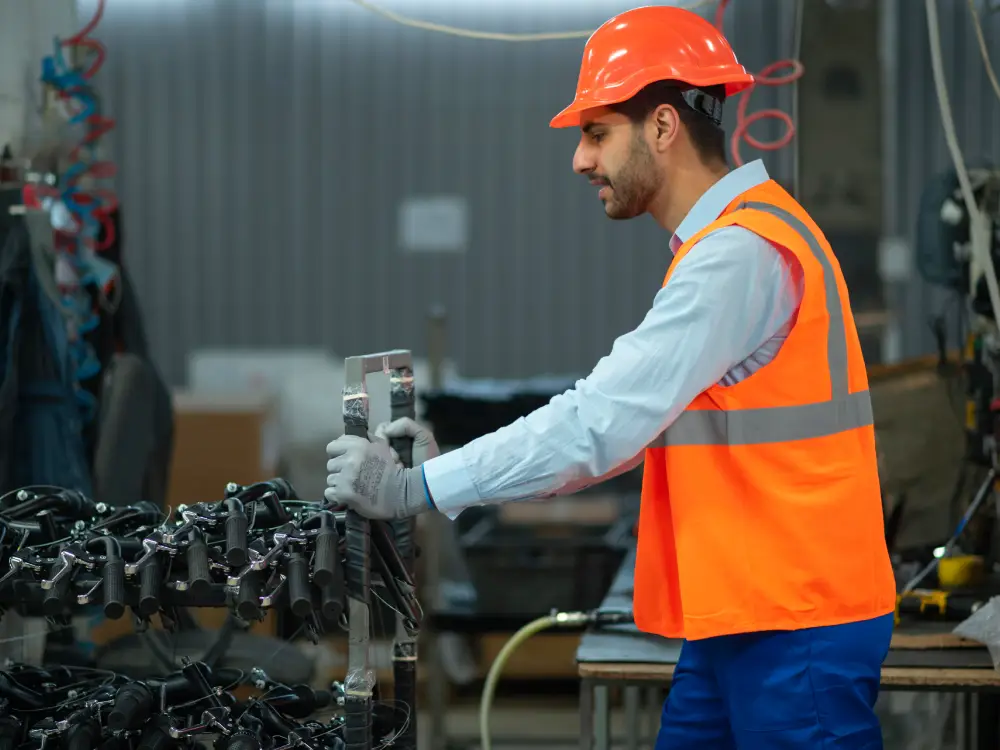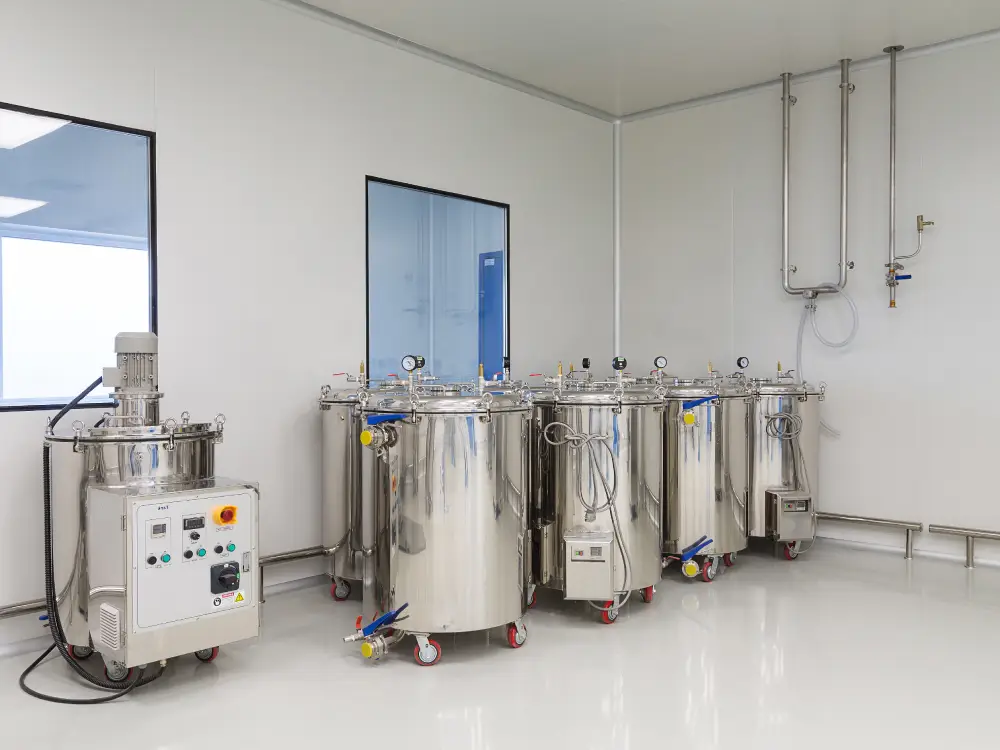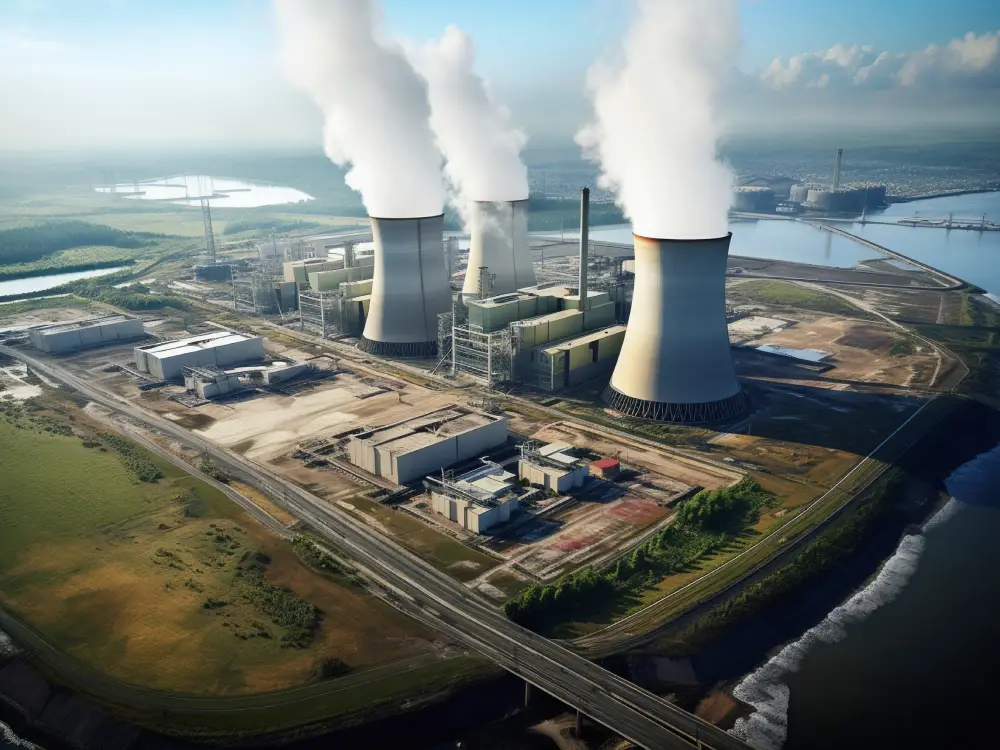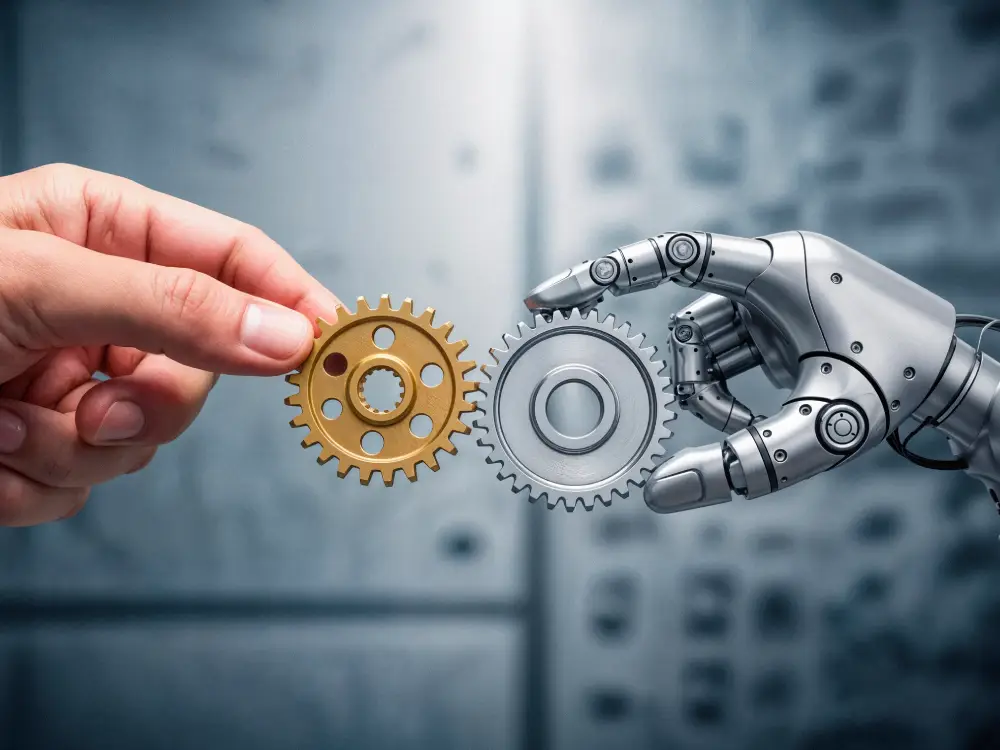At TDV think that industrial engineering is more than just a technical field; it’s the study of how to be more efficient and how to make things better. Industrial Engineering (IE), also known as “people-oriented engineering,” combines people, machines, materials, energy, and information into systems that work better, faster, and safer.
IE is different from other types of engineering because it doesn’t just make things or machines. Instead, it works to improve processes. In short, it’s about making operations more efficient, less expensive, and more environmentally friendly.
What is the field of industrial engineering?
The main focus of industrial engineering is on designing, improving, and managing integrated systems. These systems use people, raw materials, energy, machines, and information all at once.
The main goal is clear: get the most work done, waste the least amount of time, keep costs down, and make sure everyone is safe.
Picture a factory that makes cars. Everything, including workers, machines, materials, and workflows, needs to work together. An industrial engineer steps in to fix problems and improve processes when production slows down, creates waste, or jeopardizes safety.
But it doesn’t end with making things. We have seen industrial engineering used in hospitals, airlines, logistics networks, IT companies, banks, and even government services at TDV.
The Main Ideas of Industrial Engineering
The principles of industrial engineering apply to all industries:
- Efficiency means getting more done with less time, money, and work.
- Optimization means picking the best choice from a number of options.
- Systems Thinking means seeing all of your operations as parts of a whole.
- Human Factors: Making systems that are safe, comfortable to use, and easy to understand.
- Continuous Improvement: Always looking for better ways to do things and get better results.
What do engineers in industry do?
Industrial engineers are very important in many fields because they often connect technical work with business results. Some of their work is:
- Process Design and Improvement: Making workflows more efficient in factories, hospitals, and service centers.
- Quality Control: Using tools like Six Sigma to make sure standards are met.
- Supply Chain Management: Keeping track of the flow of goods from suppliers to customers.
- Operations Research: Using math and data to solve problems like scheduling and allocating resources.
- Ergonomics: Making workplaces safe and productive.
- Project Management: Getting teams to make changes to processes or systems.
Methods and Tools
Industrial engineers use a lot of different tools to get these results:
- Lean Manufacturing: Getting rid of waste and inefficiency.
- Six Sigma: Lowering defects and raising quality.
- Simulation: Testing processes before putting them into action.
- Time and Motion Studies: Making tasks easier by designing them better.
- Data Analytics: Using facts to help make choices.
- ERP Systems: Bringing together resources, money, and operations.
Uses in Many Fields
We think that industrial engineering has an effect on almost every industry that is driven by processes. A few examples are:
- Pharmaceuticals: Making drug production, cleanroom layouts, and compliance processes more efficient.
- Chemical Industry: Making plant flows better, cutting down on waste, and making things safer.
- Oil and Gas: Making sure that refineries run better and are safer.
- Food and Drinks: Making packaging systems that work better and cutting down on food waste.
- FMCG: Improving demand forecasting, warehouse operations, and supply chain speed.
Why Industrial Engineering Is Important
In a world where there is a lot of competition, businesses need to provide high-quality goods and services quickly and at a low cost. This is possible because of industrial engineers:
- Cutting Costs by getting rid of waste and making the most of resources.
- Improving Quality—making sure customers are always happy.
- Making Things Safer—creating safer workplaces.
- Increasing Productivity—helping businesses get more done with less.
What Industrial Engineers Need to Know
Professionals in IE need to develop both technical and soft skills in order to be successful:
- The ability to think critically to solve problems.
- Communication to connect teams in business and technology.
- Knowledge of software, operations research, and statistics.
- Skills in managing projects.
- Ability to work in different fields.
What Will Happen to Industrial Engineering in the Future
As Industry 4.0 grows, so does industrial engineering. Smart factories, robots, digital twins, the Internet of Things (IoT), and artificial intelligence (AI) are all changing the way we think about efficiency. At TDV, we think that industrial engineers are leading the way in making these technologies part of daily life.
Sustainability is another important area to look into. Industrial engineers are now in charge of making systems that are good for the environment, cutting down on carbon footprints, and building processes that are circular and help businesses grow in the long run.
Final Thoughts
Industrial engineering is all about making things work better, like a hospital system, a logistics chain, or a manufacturing line. It combines engineering, management, and human factors to come up with solutions that save time, money, and lives.
We at TDV think that IE is more than just a job; it’s a way of thinking. It means always asking, “How can this be done better, faster, and in a way that lasts?” That’s why industrial engineering is so important now and will be even more important in the future.








